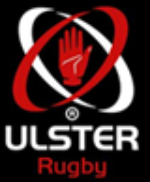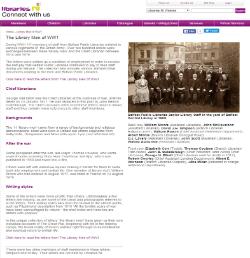2014-2015
The 'Nevin Spence Centre' Ulster Rugby
http://www.ulsterrugby.com/visitorexperience/faqs.php#.WmsPV6hl99M
|
|
This new Heritage Centre is based in the redeveloped Ravenhill Rugby Stands to encourage an interest in Rugby in the wider community, and is funded by DCAL. This initial work looks at the capture of historical Photographs (mono and colour), handwritten Minute Books dating from 1902 and objects which include shields, cups and rugby kits of various sizes. This work is likely to result in further collaboration. Each item was sensitively handled by trained staff and where appropriate an item was cleaned. A senior member of staff decided on the most appropriate scanning equipment to use flatbed, book-eye, 3D scanner, or specialised camera equipment. For each object an archival copy was retained at 1200 dpi TIFF and reduced surrogate JPEG copies made to use on the web interface. All objects were post-processed using dedicated software where the image was cropped and manipulated to ensure best quality capture. When quality controlled by senior staff the photographs showing individual players faces are marked up using PHP, enabling importation into a CDDA designed interface, allowing their names to displayed with their faces. This new site will link to the Ulster Rugby main web page. Two coded Excel spreadsheets were created to show object information and personal information relating to each player. Formats of the coded sheets will be supplied to NMNI for their archive and Ravenhill to enable future use of archival digitised materials and continued use on their web interface. |
The Library Men of WW1
http://www.librariesni.org.uk/LibrarymenofWW1/Pages/default.aspx
|
During WW1 eleven members of staff from Belfast Public Libraries “joined the Colours” and enlisted in various regiments of the British Army. Over two hundred letters were exchanged between these “library men” and the Chief Librarian between 1914-1919. The letters were written as a condition of employment, in order to receive the half-pay that Belfast Public Libraries continued to pay to their staff during war service. The collection also includes various administrative documents relating to the men and the Library Service. George Hall Elliott was the Chief Librarian at the outbreak of war, until his death on 23 January 1917. He was replaced in this post by John Bewick Goldsbrough. The Chief Librarian often read these letters aloud to library staff. They contain many references to other staff members. Every effort has been made to give more information about these people in the footnotes. The eleven “library men” came from a range of backgrounds and religious denominations. Most were born in Belfast but others originated from Ballycastle, Dungannon, Omagh and Newcastle-upon-Tyne. Some prospered after the war like Major Thomas Coulson, who wrote several books including ‘Mata Hari: Courtesan and Spy’, which was published in 1930 and turned into a motion picture. Others were left with extensive injuries making it harder for them to settle back into employment and civilian life. One member of library staff, William Brown who had enlisted in August 1917, ‘paid the supreme sacrifice’ - he was killed in France on 12 August 1918. Some of the writers were more prolific than others and unfortunately a few letters are missing as are some of the cards and photographs referred to in the letters. Their writing styles vary from the very factual to the almost poetic, such as Fitzsimons’s description of the poppies in the trenches in 1919 “All the terrible scars of war have been camouflaged by nature - the shell holes and trenches are ablaze with poppies”. In this unique collection of letters “the library men” have given us their own individual accounts of The Great War, beginning with life in the training camps, the brutal reality of trench warfare right through to demobilisation and eventual return to civilian life. |





